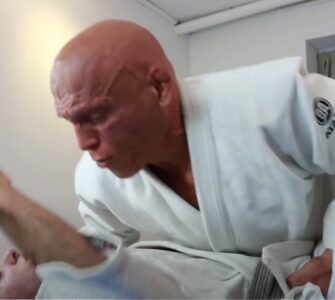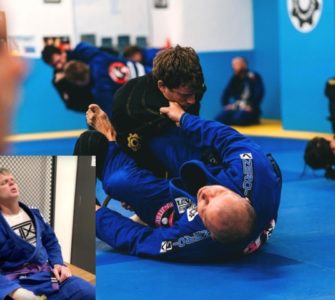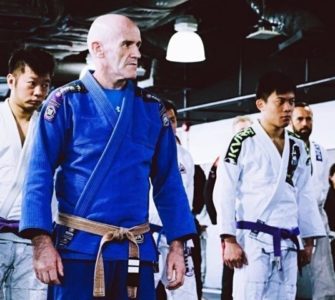If anything can have a long-lasting negative effect on one’s life, it is trauma. It can affect mental health, diminish sleep quality, and even impact one’s social and professional life. Trauma survivors describe their emotions as unpredictable, frequently leading to uncontrollable outbursts.
However, a new type of treatment is becoming popular with every passing day – trauma-informed martial arts programs. These programs are rooted in martial arts such as Brazilian jiu-jitsu, boxing, MMA, etc.
But how can a martial art training program help with trauma? Let’s see the connection between martial arts and trauma treatment. Also, we will explore other ways to deal with overwhelming emotions. The stigma around mental health issues continues to persist, and the pandemic might leave patients with limited options for seeking help.
Martial Arts and Trauma Treatment
Using martial arts to treat trauma, mitigate its symptoms, and help survivors get back to living their everyday lives is not something brand new. There are already numerous reports on martial arts being successfully used to treat PTSD, which is common disorder survivors deal with.
Martial arts have also proved as one of the best possible treatments for traumatic stress. They are often part of the trauma treatment programs at trauma treatment centers worldwide. The martial arts are following up on the trend. According to a Guardian article, trauma-informed Brazilian jiu-jitsu programs are also on the rise. The only question that remains is how do martial arts help with trauma treatment?
Help with Overcoming the Freeze Response
The natural response to threatening emotional stressors or predators is flight or fights. However, trauma survivors often experience the overwhelming freeze response. Freeze response negates the natural flight or fight response because it’s so profound. It’s powered by the traumatic experience and affects survivors’ physical and mental state.
Martial arts are great for dealing with the freeze response. They enable survivors to again connect with the natural fight impulse in their bodies. They can help survivors shift their mindset and start seeing themselves as strong and capable of dealing with stressors again.
Re-establishing Mind-Body Connection
Mind and body are not two separate things. They go together. Unfortunately, many trauma survivors lose this connection. As a consequence, they don’t have access to higher brain functions. In other words, when in a flight or fight situation, they cannot think clearly or plan since they are stuck in the defensive response.
Martial arts can help re-establish the mind-body connection. Through devotion and practice, survivors can get unstuck from the defensive response. They can again be able to pay attention to their bodily sensations and surroundings.
Improved Sleep
Martial arts refer to the training of both mind and body. Why is it relevant? Many trauma survivors are struggling with PTSD and insomnia. They often feel tired. Yet they have problems falling asleep or staying asleep for more than just an hour or a couple of hours. Martial arts achieve the calming effect in two ways.
The first one, re-establishing the mind-body connection, we have already covered. The second one involved physical exercises and repetitive movement. The repetitive movement requires concentration and to be grounded in the here and now.
The meditative aspect of practicing martial arts can help achieve mindfulness and overcome trauma. Physical exercise by itself is beneficial as it promotes sleep.
With this unique mix of benefits, martial arts can alleviate symptoms of PTSD and help survivors fall back into their natural circadian rhythm.
Improved Mental Health Overall
Surviving a trauma leaves a deep scar on one’s mental health. The outcome is not the same for everyone. Some people experience sleep disturbances and vivid nightmares. Others have to deal with depression, anxiety, low self-esteem, and no self-confidence. Their life can appear as if they will never be the same again.
Being involved in martial art training can help improve mental health, especially in individuals that have gone through a traumatic experience. That’s precisely where the mental health benefits of Brazilian jiu-jitsu become valuable. BJJ can help boost self-confidence and self-esteem and, at the same time, enable survivors to become better at managing their feelings.
Martial Arts Combined with Other Techniques
Do not forget that martial arts can aid your journey to come on top of your trauma. However, they are far from being the sole remedy. They provide the best results when paired with some other type of treatment such as counseling or psychotherapy.
The pandemic has brought us a complicated situation when many counseling services are unavailable or only supply video consultations. Thus, many people might be eager to continue their healing journey online. However, some might turn to mental health apps, and their popularity has greatly increased during the pandemic. But there is a catch.
Before choosing an app for letting go of your emotional distress, you need to be sure that your data will be dealt with the utmost care. You would not like advertisers or other third parties learning about your mental health, right? In other cases, you would not want others to snoop on your consultations or chats. For this purpose, be sure to use a reliable mental health app, and pair it with an online VPN for extra protection. The latter will help you be more anonymous and protect the integrity of your sensitive data.
Whether you choose BJJ, Wrestling, MMA, or something else, you’ll be able to experience the mental health benefits of martial arts training and go back to your normal life. You will feel stronger, both emotionally and physically. Thus, consider learning martial arts, even if it means tuning in to watch online lessons. Currently, many services offer online courses for martial arts, self-defense, meditation, or basically anything you are willing to give a go.

















